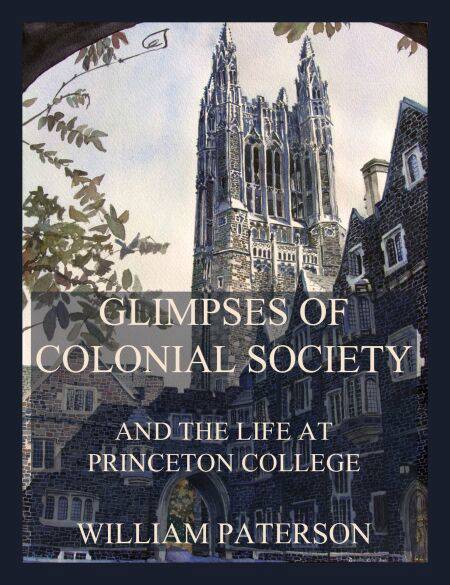
- Afhalen na 1 uur in een winkel met voorraad
- Gratis thuislevering in België vanaf € 30
- Ruim aanbod met 7 miljoen producten
- Afhalen na 1 uur in een winkel met voorraad
- Gratis thuislevering in België vanaf € 30
- Ruim aanbod met 7 miljoen producten
Zoeken
Glimpses of colonial society and the life at Princeton College E-BOOK
William Paterson
E-book | Engels
€ 4,99
+ 4 punten
Omschrijving
William Paterson is best known to history as the spokesman of "the New Jersey plan" in the Federal Convention, intended to preserve the rights of the smaller States against their larger sisters. His fame rests upon his administration as Governor of New Jersey, and his thirteen years as a Justice of the United States Supreme Court. An insight into his earlier years is afforded by the publication of "Glimpses of Colonial Society and the Life at Princeton College." These glimpses are given in a series of letters written by Paterson to his college friends, and by random letters written to him. Among these friends are John Macpherson, who fell in the assault of Quebec, Luther Martin, of Anti-Federalist fame, and Aaron Burr, who was graduated from Princeton in the class of 1772. With these letters are included some verses, chiefly in the style of Pope, intended for the Cliosophic Society of Princeton College, and a few scraps of old-time college songs. Abounding in classic allusion, passing readily upon occasion into Latin, quoting from Swift, Pope, Molière, and Horace, the compositions of this young law student illustrate the aristocracy of letters in that day. Although covering the years important in the political revolution of the Colonies, there is scarcely a reference to politics, or any prophecy of the public career so soon to be opened to this verbose essayist.
Specificaties
Betrokkenen
- Auteur(s):
- Uitgeverij:
Inhoud
- Aantal bladzijden:
- 176
- Taal:
- Engels
Eigenschappen
- Productcode (EAN):
- 9783849663834
- Verschijningsdatum:
- 9/08/2023
- Uitvoering:
- E-book
- Beveiligd met:
- Digital watermarking
- Formaat:
- ePub

Alleen bij Standaard Boekhandel
+ 4 punten op je klantenkaart van Standaard Boekhandel
Beoordelingen
We publiceren alleen reviews die voldoen aan de voorwaarden voor reviews. Bekijk onze voorwaarden voor reviews.







